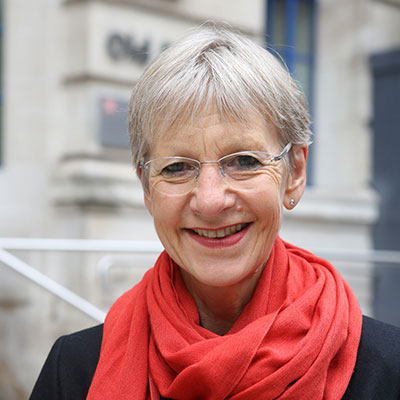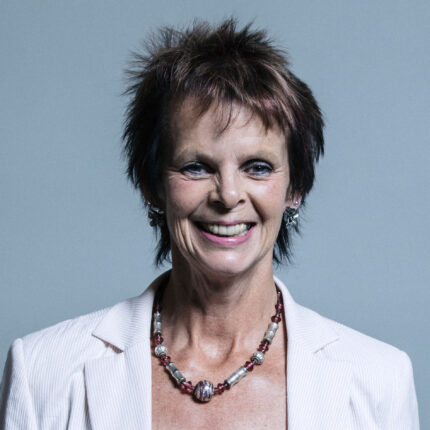
Wonkhe presents
Wonkhe @ Home: Credit worthy?
Making sense of the government’s new proposals for post-18 education
Online
Get DirectionsWith the publication of the Skills for Jobs white paper, the government’s interim conclusion of the review of post-18 education and funding and the plans for the future of the Teaching Excellence Framework, a policy agenda for the future of post-compulsory education in England is taking shape.
At this Wonkhe @ Home we’ll digest all the policies and their implications for universities, and we’ll assess the likely direction of travel for post-compulsory education across the UK in the context of the government’s wider aspirations for rebuilding post-Covid. With the help of a basket of policy experts and policy makers we’ll identify the opportunities and risks for higher education and think through the crunchiest policy challenges the government has set itself.
Agenda
09.00 Welcome and policy debrief with Team Wonkhe
09.40 The future shape of post-compulsory education – what we know about the policy and the politics
Speakers: David Hughes, chief executive, Association of Colleges; Anne Milton, former minister for skills and apprenticeships and KPMG associate; Andy Westwood, professor of government practice, University of Manchester.
10.30 Higher technical skills, credit transfer, and lifelong loans
Speakers: Edward Peck, vice chancellor, Nottingham Trent University; Sue Rigby, vice chancellor, Bath Spa University; Claire Callender, professor of higher education studies, UCL Institute of Education.
11.20 Break
11.40 Unpacking the Pearce review of TEF
In conversation with Shirley Pearce, independent reviewer of TEF.
12.00 Quality, TEF and the student experience
Speakers: Shirley Pearce, independent reviewer of TEF; Chris Husbands, vice chancellor, Sheffield Hallam University, and TEF chair; Ailsa Crum, Director of Membership, Quality Enhancement and Standards, QAA; Meg Price, vice president education, Worcester SU.
12.45 Close
Agenda subject to change
Default title
Wonkhe presents
Wonkhe @ Home: Credit worthy?
Making sense of the government’s new proposals for post-18 education
Online
Get DirectionsWith the publication of the Skills for Jobs white paper, the government’s interim conclusion of the review of post-18 education and funding and the plans for the future of the Teaching Excellence Framework, a policy agenda for the future of post-compulsory education in England is taking shape.
At this Wonkhe @ Home we’ll digest all the policies and their implications for universities, and we’ll assess the likely direction of travel for post-compulsory education across the UK in the context of the government’s wider aspirations for rebuilding post-Covid. With the help of a basket of policy experts and policy makers we’ll identify the opportunities and risks for higher education and think through the crunchiest policy challenges the government has set itself.
Agenda
09.00 Welcome and policy debrief with Team Wonkhe
09.40 The future shape of post-compulsory education – what we know about the policy and the politics
Speakers: David Hughes, chief executive, Association of Colleges; Anne Milton, former minister for skills and apprenticeships and KPMG associate; Andy Westwood, professor of government practice, University of Manchester.
10.30 Higher technical skills, credit transfer, and lifelong loans
Speakers: Edward Peck, vice chancellor, Nottingham Trent University; Sue Rigby, vice chancellor, Bath Spa University; Claire Callender, professor of higher education studies, UCL Institute of Education.
11.20 Break
11.40 Unpacking the Pearce review of TEF
In conversation with Shirley Pearce, independent reviewer of TEF.
12.00 Quality, TEF and the student experience
Speakers: Shirley Pearce, independent reviewer of TEF; Chris Husbands, vice chancellor, Sheffield Hallam University, and TEF chair; Ailsa Crum, Director of Membership, Quality Enhancement and Standards, QAA; Meg Price, vice president education, Worcester SU.
12.45 Close
Agenda subject to change
Default title
Speakers
-

Shirley Pearce
Chair, independent review of the TEFShirley has held senior executive and non-executive roles in higher education, health and policing. She was Vice Chancellor of Loughborough University from 2006 – 2012, where she delivered a new strategy for the university which saw a significant increase in turnover, closer working with industry partners and research success in the Research Excellence Framework alongside … Continued
-

Chris Husbands
Vice chancellor, Sheffield Hallam University and chair, TEFSir Chris Husbands is a university leader, academic, educationist and public servant. He has served as vice chancellor of Sheffield Hallam University in the UK since January 2016. Prior to joining Sheffield Hallam, Sir Chris was Director of the Institute of Education (2007-2015) and then Vice-Provost at University College London (2014-2015). Sir Chris is also … Continued
-
![your default content]()
Anne Milton
Former skills and apprenticeships ministeryour default content
-

Andy Westwood
Professor of Government Practice, University of Manchester and former Labour adviserAndy Westwood, Vice Dean for Social Responsibility in the Faculty of Humanities and Professor of Government Practice, University of Manchester
-
![your default content]()
David Hughes
CEO, Association of Collegesyour default content
-
![Sue Rigby]()
Sue Rigby
Vice Chancellor, Bath Spa UniversitySue Rigby
-
![]()
Edward Peck
Vice Chancellor, Nottingham Trent University -
![your default content]()
Claire Callender
Professor of higher education, Birkbeck and UCL Institute of Educationyour default content
-
![]()
Ailsa Crum
Director of Membership, Quality Enhancement & Standards, QAA -
![your default content]()
Meg Price
President, Worcester Students' Unionyour default content
-
![Mark Leach is the founder, Editor in Chief and CEO of Wonkhe. Mark worked in policy, politics and public affairs in and around UK higher education and founded Wonkhe in 2011 while working as a jobbing policy wonk in the sector. The first part of his career took him to the National Union of Students, HEFCE, University Alliance, GuildHE as well as a stint in politics as a special adviser to the former Shadow Minister for Universities & Science. Mark began full-time work on Wonkhe in mid-2014 growing it into a thriving business. As CEO, Mark is responsible for running and developing Wonkhe and as Editor in Chief oversees Wonkhe’s editorial platforms. You can read more about everything that Wonkhe does here.]()
Mark Leach
Founder & Editor in Chief, WonkheMark Leach is the founder, Editor in Chief and CEO of Wonkhe. Mark worked in policy, politics and public affairs in and around UK higher education and founded Wonkhe in 2011 while working as a jobbing policy wonk in the sector. The first part of his career took him to the National Union of Students, … Continued
-
![Debbie McVitty is Editor of Wonkhe. Debbie is a former chief of staff at Universities UK, director of policy at the University of Bedfordshire, and head of policy at the National Union of Students, and is a founding member of Wonkhe’s editorial group.]()
Debbie McVitty
Editor, WonkheDebbie McVitty, Editor, Wonkhe
-

Jim Dickinson
Associate Editor, WonkheJim is an Associate Editor at Wonkhe and takes a particular interest in the student experience, university governance, and regulation – and leads our work with students’ unions. His career background is in support for student leadership. He has held senior roles at the National Union of Students – where he led on SU development, … Continued
-
![David Kernohan is Associate Editor of Wonkhe. Until June 2016, he worked at Jisc as a programme manager and senior codesign manager, after being seconded from HEFCE in 2006. He has also worked for the University of Glamorgan (now the University of South Wales). As Associate Editor, David has responsibility for the development and delivery of a variety of editorial content. His key areas of wonkishness include teaching quality enhancement policy, funding policy, sector agency politics and history, research policy, and the use of technology and data in Higher Education.]()
David Kernohan
Associate Editor, WonkheDavid Kernohan is Associate Editor of Wonkhe. Until June 2016, he worked at Jisc as a programme manager and senior codesign manager, after being seconded from HEFCE in 2006. He has also worked for the University of Glamorgan (now the University of South Wales). As Associate Editor, David has responsibility for the development and delivery … Continued









